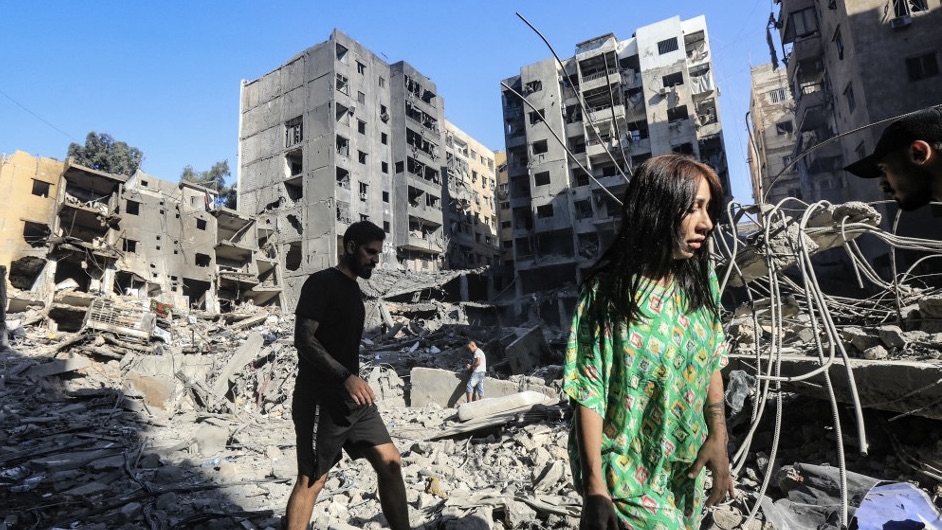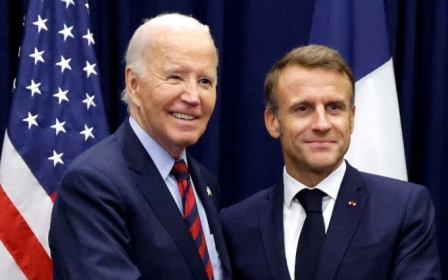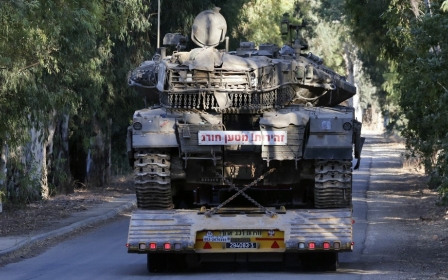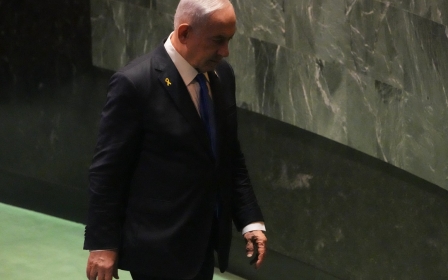Hezbollah's fatal mistake was to believe Israel was bound by the rules of war

Thirty-two years ago, an Israeli raid killed Abbas al-Musawi, then-secretary general of Hezbollah.
At the time, Israeli newspaper front pages celebrated the event as the ultimate defeat of the Lebanese movement. The last three decades have shown that such optimism was plain wrong. Hezbollah reacted bloodily elsewhere and, in due course, it has become far stronger than it was in the early 1990s.
So far, there is no indication that Hassan Nasrallah’s killing in Beirut on 27 September might precipitate, once again, the demise of Hezbollah.
What Israel and, more generally, western democracies miss in their analysis is that their general concepts of victory or defeat cannot be easily applied to an organisation devoted to martyrdom, as Hezbollah is.
In other words, if Hezbollah wins, this event is celebrated. If it loses, it is celebrated as a martyrdom in a larger conflict against oppression (Israeli occupation of Arab lands) and injustice (western hegemony and double standards in international relations). In one word, this is called resistance.
New MEE newsletter: Jerusalem Dispatch
Sign up to get the latest insights and analysis on Israel-Palestine, alongside Turkey Unpacked and other MEE newsletters
As with any other organisation, Hezbollah makes mistakes, and in recent times, it has made a lot of them.
The major one was to believe that Israel was still bound to some rules of engagement - a fatal mistake. For after 7 October, Israel is no longer bound to any rules of engagement, as its military operations in Gaza, Lebanon, Yemen and Iran have proven.
Decapitated and weakened
Shielded by the total impunity that the US and the EU have extended to it, and in some cases also their open complicity, Israel has used its unique intelligence and military capabilities to deliver very hard blows against its enemies. If, in so doing, it has achieved its most important objectives, it is currently harder to tell.
It is still unknown to what extent the spectacular pagers and walkie-talkie explosions allowed Israel to also acquire high-level information, through accessing GPS systems in the devices, about the movements and power structures of Hezbollah’s top leadership.
Follow Middle East Eye's live coverage of the Israel-Palestine war
There is no doubt that in the last 12 months, Israel has decapitated and weakened both Hamas and Hezbollah. It has created confusion and disarray in both organisations, but it is far from certain that it has also succeeded in subduing them once and for all.
It is possible to kill people, but not the ideas and grievances which move them.
Concerning the modalities and timing of Hezbollah’s reaction to the latest blows inflicted by Israel, the standard rule that has remained constant for decades in the organisation should not be forgotten.
Hezbollah is not conditioned by the news-cycle needs of the large western and non-western information networks, and much less so by the expectations of the political classes and security apparatuses of the states it is confronted by, starting with Israel itself.
Aware of its military and technological inferiority, Hezbollah has always tried to use intangible factors, such as time, to its advantage.
Keeping the enemy on the ropes while waiting is often nerve-wracking. Because how and when the retaliation will materialise is already in itself a form of reaction, and punishes one's opponent.
Asymmetrical and hybrid warfare, at a time of their own choosing, is standard for organisations which have made resistance the key driver of their activity. A war of attrition and not open confrontation is always the best option when dealing with Israel.
Mortal blow
Furthermore, the Axis of Resistance’s reaction to Israel has not yet shown any significant synergy and coordination.
Hamas carries out its rocket launches, as does Hezbollah, the Houthis and the Iraqi Shia militias.
Tehran carried out its own operation after the Israeli attack on Iran’s consulate in Damascus in April. They mostly acted separately from each other.
They have never engaged Israel together at the same time in order to saturate the Iron Dome system and inflict far more significant casualties and damage to Israel. It is not clear if this was a deliberate show of restraint, or the result of technical and logistical difficulties.
Regardless of all these considerations, Israel has inflicted a devastating blow on Hezbollah. But this "success" will be meaningless if it does not also neutralise the threat to its northern communities, which have been displaced for the last 12 months.
If, as claimed, Israel’s main objective is to return to their homes its 60,000 citizens forcefully resettled in the south, it will have to conduct a ground operation in southern Lebanon.
Ideally, it would attempt to re-create the buffer zone it enjoyed between 1982 and 2000. However, in the case of a ground operation, Hezbollah could inflict significant casualties on the Israeli army.
Strategic patience
Israel should think twice before venturing with its ground forces into southern Lebanon. It may well find a confused and demoralised Hezbollah army, but also one that has significantly increased its fighting capabilities, especially after the experience acquired in fighting during the long Syrian civil war.
Israel may well find a confused and demoralised Hezbollah army, but also one that has significantly increased its fighting capabilities
Hezbollah's elite forces, the Radwan, deployed along the border, are largely intact.
On the other hand, Israeli Prime Minister Benjamin Netanyahu could find himself in a win-win situation.
If nothing else happens, he could claim an important victory against Hamas and Hezbollah by having achieved a significant degradation of their assets and leadership.
If all-out war involving all the Axis of Resistance should instead break out, he could claim the most important Israeli strategic success of recent decades: an escalation which could ultimately draw the United States into an open conflict with Iran.
In such a scenario, his stay in power might be assured for years to come.
There is only one way to avoid such eventuality: the Axis of Resistance should show far more strategic patience than it has demonstrated so far.
The views expressed in this article belong to the author and do not necessarily reflect the editorial policy of Middle East Eye.
Middle East Eye delivers independent and unrivalled coverage and analysis of the Middle East, North Africa and beyond. To learn more about republishing this content and the associated fees, please fill out this form. More about MEE can be found here.






